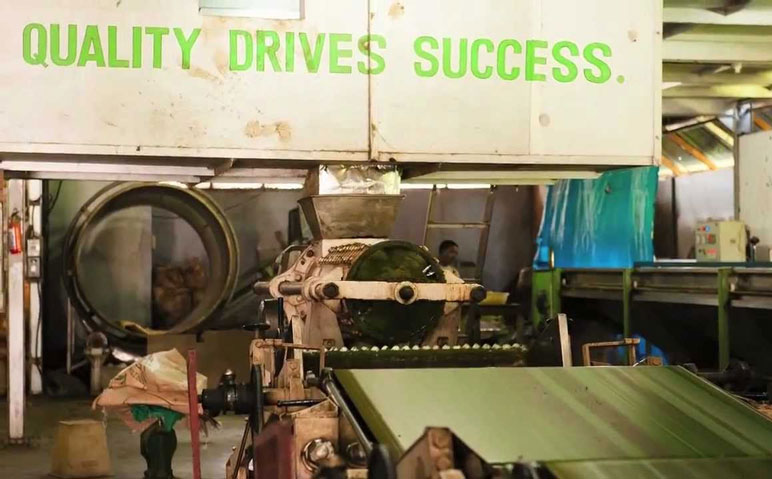|
|
|
INDIA: ASSAMThe low-lying plains of Assam are covered in endless tea fields. Where large corporations see vast plains of cheap tea, community leader Rajen Baruah sees a chance to empower local tea farmers. |
|
|
Travel NotesDibrugarh, Assam District: It's March 30, and the harvest season is underway in Assam. Together with our friend Tico Aran of Jojo Tea, it takes us 17 hours to travel from Southern India to the plains of Assam in the north. Waiting for us at Dibrugarh Airport is our partner in tea, Ishan Baruah, and from there it's a short trip to his family's facility at Heritage Tea.
|
PHOTO DIARY: HERITAGE TEA, ASSAM
|
In Assam, farmers typically sell their raw leaves to large factories. Ishan's father, Rajen Baruah, worked with Unilever in this mass-produced model for many years. He had already retired, when he decided he wanted to leave a different legacy through Heritage Tea.
Heritage Tea is Rajen's project to make a positive change in Assam's tea industry. He left retirement, invested in a quality processing unit, and began to teach small farmers about better tea. The result is a culture of community among the local tea workers, and an increase in specialty Assam tea.
The key was to empower the farmers. Rajen teaches farmers to convert their fields from conventional chemicals to all-natural farming, with local cow manure and vermicompost.
Learn about vermicomposting with the Heritage Tea community. Rajen also helps train workers to pluck with a better standard during the harvest. Most workers typically just pluck whatever they can, rushing to get a higher quantity for the factories. Instead, Rajen focuses on quality, and offers a higher price for leaf than the large factories.
As a result, the farmers can focus on quality, and pay their staff better wages. These small farmers, who average 4 hectares and have about a dozen workers, treat their staff like family, and work as a team.
We visited one of these farms that produces leaves for the high-quality teas on the Tealet Platform, like Orthodox Black. Rajen showed us the different varieties of plants in the well-manicured fields. Ishan was happy to observe that this year's leaf looks promising, as the farmers are plucking with even better standards now.
Credit: Heritage Tea on Facebook
Back at the Heritage Tea processing unit, they have already been making bulk orthodox teas. They made a batch of this mid-grade product during our visit. The team is just now gearing up to make the higher-quality, specialty teas. Having both the bulk processing and the specialty teas is important to keep the project sustainable, as the quality market still needs to grow.
While it will take time for things to shift in Assam, there is definitely a turn towards quality. The Tea Board of India and other organizations see Heritage Tea as a unique, valuable model for tea growers, and have enlisted Rajen to help other projects in the region. He now serves not only as Heritage Tea's founder, but also as a consultant to continue to empower growers in Assam and neighboring areas. In our next installment, we journey to one of Rajen's projects in Arunachal Pradesh, as he continues to leave a legacy of quality in tea.
See more from Heritage Tea at their Grower Profile.
|
|
|










